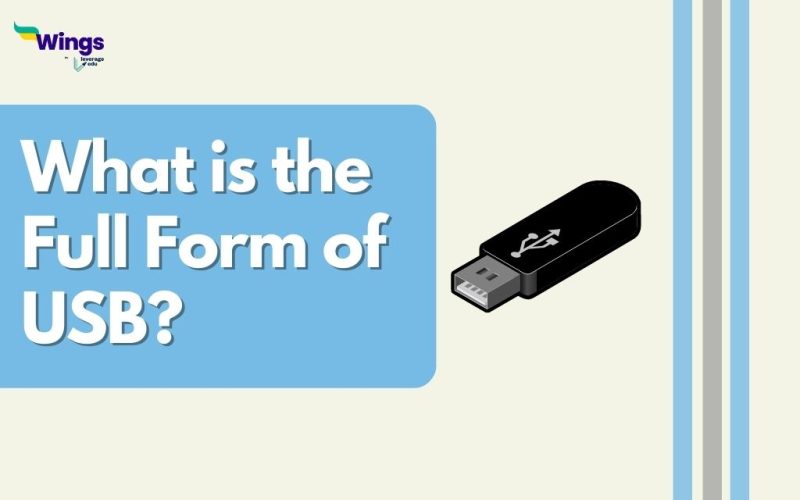The full form of USB is Universal Serial Bus. It is a common platform that allows devices to communicate with a host controller, such as a PC (computer). Such buses are useful when we are unsure how to connect the computer to the electronic system we have. They are used for networking, communication, and power supply.
Universal Serial Bus is productive and saves workload by exchanging data and electrical power supply across various peripherals gadgets such as printers, scanners, mouse, digital cameras, keyboards, flash drives and external hard drives, etc. It also minimises power consumption, which is ideal for data storage.
History of USB
Table of Contents [show]
In 1994, seven firms collaborated to develop USB: Microsoft, Compaq, Intel, Nortel, DEC, IBM, and NEC. USB was created to make connecting external devices to a computer easier and more pleasant for the user. Windows, Mac, and other operating systems use USB devices and consider them to be very useful tools.
Connection of USB with Computer
To connect the USB and PCs, insert the USB device into the computer’s USB port. After you insert the device, it will immediately detect it and begin working on it. It is not necessary to restart the computer once the USB device has been attached. Universal Serial Bus (USB) devices come in a variety of sizes.
- Micro size USB
- Mini size USB
- Standard size USB
Advantages of USB
- Low power consumption
- USB is less costly
- Each device having a USB port is compatible with the USB
- The USB can be of various sizes, and it can be connected in a variety of ways
Disadvantages of USB
- Data transmission is not significantly faster than in other systems
- Single messages can only be sent between the peripheral and the host, and the Universal Serial Bus lacks the broadcast capability
- USB’s performance and capabilities are limited
Also Read: Computer Courses
We hope this information helped you to understand the full form of USB. For more updates like these, you can check our page.
 One app for all your study abroad needs
One app for all your study abroad needs















 45,000+ students trusted us with their dreams. Take the first step today!
45,000+ students trusted us with their dreams. Take the first step today!
